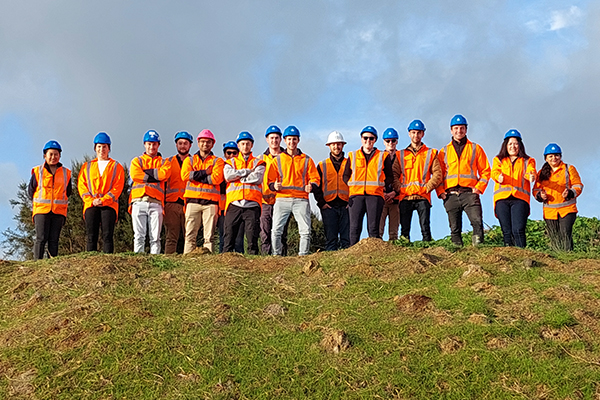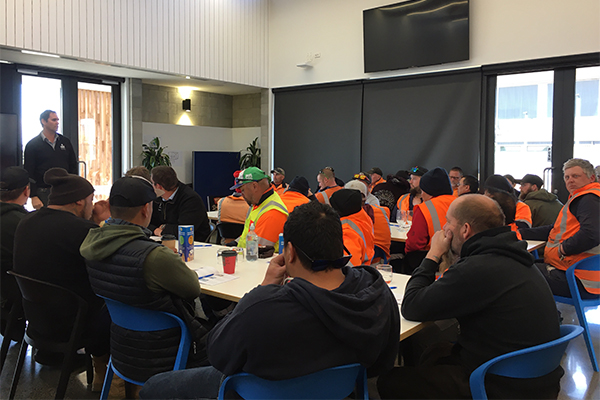Finalist

When HEB Construction identified that people from Māori and Pasifika communities were under-represented in qualified and leadership roles within its regional projects, it launched an initiative to change the statistics and grow capability for this group.
HEB Construction has been in business in New Zealand since the late 1970 and is a nationwide operation that designs and builds structures and infrastructure that address major societal issues - global warming, population growth, burgeoning urbanisation and increasing mobility.
As part of identifying gaps in Māori and Pasifika inclusion in projects in locations such as Manawatū, Waikato and Bay of Plenty, the company realised that improving belonging and engagement for this group stretched beyond offering employment and career pathways and required a more nuanced, culturally relevant approach.
In 2020 HEB gained funding from the Provincial Growth Fund for Regional Apprenticeships to provide a wrap-around programme including life skills, literacy and numeracy, wellbeing (cultural programme), and pastoral care, as well as formal industry qualifications.
Learning from past mistakes, the team developed the programme to ensure the highest chance of success and fill gaps that have been missing in previous apprenticeship programmes.
When apprenticeship candidates first join HEB, they undergo a literacy and numeracy assessment and are provided with increased literacy support if they need it to successfully participate in the Regional Apprenticeship Programme.
HEB has increased staffing capacity to get better outcomes from the programme. This
has provided HEB Management and potential regional apprentices with more support up-front, regular face-to-face progress checks, and pastoral care.
Apprentices also have access to the organisation’s Cultural Competency programme, which has been designed to support Māori and non-Māori based around three key pou – hononga, mana and hauora.
HEB worked with partners such as Upskills for literacy and numeracy support and Skills Consulting Group for the cultural programme to ensure the Regional Apprenticeship Programme was equipped to increase the success of apprentices who may have failed to reach their potential at school or who require additional life skills to truly thrive at work.
The programme also offers wage subsidies for the first two years while the apprentice is learning and training cost subsidies to cover costs involved with bringing someone new to the sector on board or teaching additional skills. This supports business units and projects to take on apprentices in the regions.
Since the programme began in August 2020, there have been 30 apprentices join across the regions. From that cohort, 24 are still actively working towards their qualification and six have left HEB, an 80 per cent retention rate.
Apprenticeships generally take between two to four years to complete, depending on the qualifications chosen. This programme also opens the door for apprentices to access the HEB’s leadership pathway.

There are lots of personal success stories from the programme including Maxwell Sercombe’s achievement in being named as the 2021 Concrete Industry Apprentice of the Year.
“Max joined us at the Te Ahu a Turanga: Manawatū Tararua Highway project in January, from Transmission Gully where he completed a three-year apprenticeship for HEB Construction, and we are thrilled to have him. He has a great learning and working ethic and he certainly deserves to be recognised in this way,” says National Learning & Development Manager Leeann Clark.
“HEB considers itself an integral part of wider communities and the Regional Apprenticeship Programme supports our goal of growing capability across sectors including civil infrastructure, maintenance, structures, and plant management.
“MBIE research points to Māori being more likely to be employed in lower-skilled roles than non-Māori, and this is more pronounced in the regions. We want to help local communities to grow the skills of their people for sustainable careers in infrastructure.”


